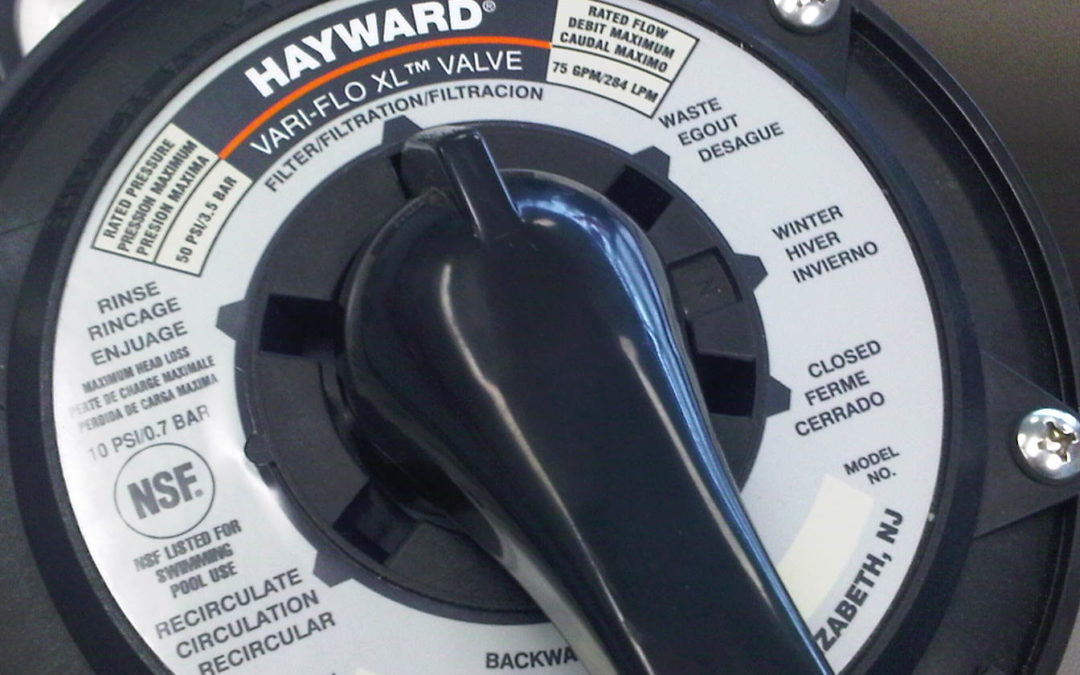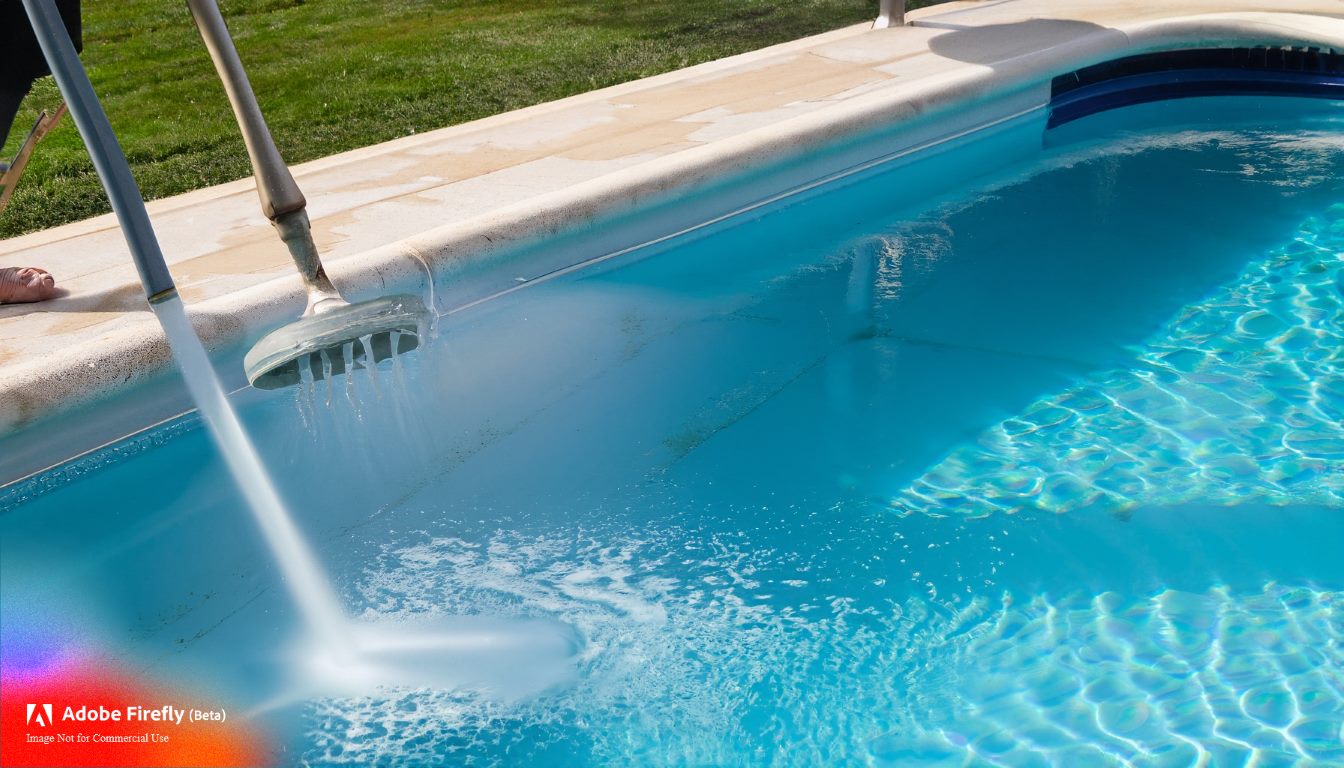Yes, you should always rinse after backwashing a pool. Backwashing is the process of cleaning the filter in a pool system by reversing the water flow.
Any debris or build-up in the filter is flushed out and sent to the waste line. While it may seem unnecessary to rinse the pool after this process, it is important to remove any remaining debris or chemicals that may have been released during backwashing. Failure to rinse may result in cloudy water or imbalanced chemicals. Rinse thoroughly with clean water for at least a few minutes after backwashing to ensure a clean and healthy swimming environment.

Credit: poolsidenorthshore.co.nz
What Happens After Backwashing?
Backwashing is a crucial step in pool maintenance that helps remove waste and contaminants from the filter. While backwashing helps keep water in pools clean, the process itself generates waste that must be carefully managed. Sand filters usually generate the largest waste output during backwashing due to their large surface area.
These waste materials comprise debris, dirt, oils, and algae that the filter has accumulated over time. After backwashing, there can be a residual effect on the pool water due to the water circulation being interrupted. Consequently, it’s crucial to monitor ph and chlorine levels and adjust as necessary to ensure the pool remains safe and enjoyable.
Do You Need To Rinse Your Pool After Backwashing?
Do you need to rinse your pool after backwashing? It’s a question that has caused some debate among pool owners. Some argue that rinsing is unnecessary as the backwash cycle is designed to remove debris and contaminants from the filter.
However, others believe that rinsing is important to remove any remaining debris or dirt that may have accumulated during the backwash process. Factors that influence the need to rinse your pool include the size of your pool, the type of filter you have, and the amount of dirt and debris present in your pool.
Ultimately, the decision to rinse or not to rinse is up to the pool owner. It’s important to weigh the pros and cons of each method and come to a decision that’s best for your pool and your family’s health.
How to backwash and rinse your swimming pool
Pros And Cons Of Rinsing Your Pool After Backwashing
Backwashing is an essential practice for keeping your pool sparkling clean. Afterward, some owners prefer to rinse the filter with water, while others skip this step. Rinsing has some advantages, including removing any debris from the pool and filter, preventing cloudy water, and improving filtration.
However, it wastes water and chemicals and can decrease filter life. Additionally, chemicals and ph levels can be disturbed, resulting in unsafe swimming conditions. It’s always best to consult with a pool professional about your pool system’s unique needs to determine if rinsing after backwashing is necessary.
Ultimately, the pros and cons must be weighed to make the most informed decision for your pool and wallet.
How To Rinse Your Pool After Backwashing
After backwashing your pool, it’s essential to rinse it to remove any remaining debris or contaminants. Here is a step-by-step guide to follow for optimal results: first, turn off the pump. Second, switch the valve to the rinse position. Third, turn the pump back on and let it run for one to two minutes.
Fourth, turn off the pump again, and switch the valve back to the filter position. Fifth, turn the pump back on, and your pool is ready to go. It’s crucial to follow these steps to prevent any contaminants from reentering the pool.
Additionally, using alternative methods like vacuuming the pool or adding a pool clarifier can help optimize results. Following these best practices will ensure that your pool remains clean and healthy all season long.
Frequently Asked Questions For Do You Rinse After Backwashing A Pool
What Is Backwashing A Pool, And Why Is It Necessary?
Backwashing a pool is the process of cleaning the pool filter by reversing the flow of water and flushing out accumulated debris and particles. It is necessary to maintain the cleanliness and efficiency of the pool filtration system and ensure proper circulation and sanitation of pool water.
After Backwashing My Pool, Do I Need To Rinse It?
Yes, it is necessary to rinse your pool after backwashing it. This helps to remove any remaining debris, dirt particles, or residual chemicals from the pool. Failing to rinse your pool after backwashing can cause the water to become cloudy and dirty, and it can also affect the chemical balance of the pool water.
Therefore, it is always advisable to rinse your pool thoroughly after backwashing it.
What Happens If I Don’T Rinse My Pool After Backwashing It?
If you don’t rinse your pool after backwashing it, the dirty water that was in the filter may return to the pool and contaminate it. This could lead to poor water quality, cloudiness, or even illness from harmful bacteria or algae that can grow in untreated water.
It’s essential to always follow proper pool maintenance procedures, including rinsing your pool after backwashing, to ensure a safe and clean swimming environment.
How Much Water Do I Need To Use For Rinsing My Pool After Backwashing It?
The amount of water required to rinse a pool after backwashing it depends on the size of the pool and the length of the backwash cycle. As a general guideline, you should rinse the pool for 1-2 minutes for each minute of backwash.
This will ensure that all of the backwash water is flushed out and the pool is properly clean. You can also use a pool water meter or timer to measure the amount of water used during the rinsing process.
How Often Should I Backwash And Rinse My Pool?
You should backwash and rinse a pool’s filter system once a week to ensure proper cleaning and maintenance of the pool’s water. However, the frequency may vary based on the size and usage of the pool, as well as the type of filter system used.
Conclusion
Rinsing after backwashing a pool is crucial to maintain a clean and healthy swimming environment. Neglecting to do so can result in the reintroduction of dirt and debris back into the pool, leading to potential health issues for swimmers. By following the proper procedures for backwashing and rinsing, pool owners can ensure that their pool’s water quality is optimal and safe.
Cutting corners and skipping the rinsing step can lead to costly repairs and a pool that is not fit for use. By taking the time to perform this necessary step, owners can enjoy their pools for longer, without worrying about the potential harm that dirty water can cause.
Remember, maintaining a pool requires attention and care, but it’s all worth it for the enjoyment it provides.
